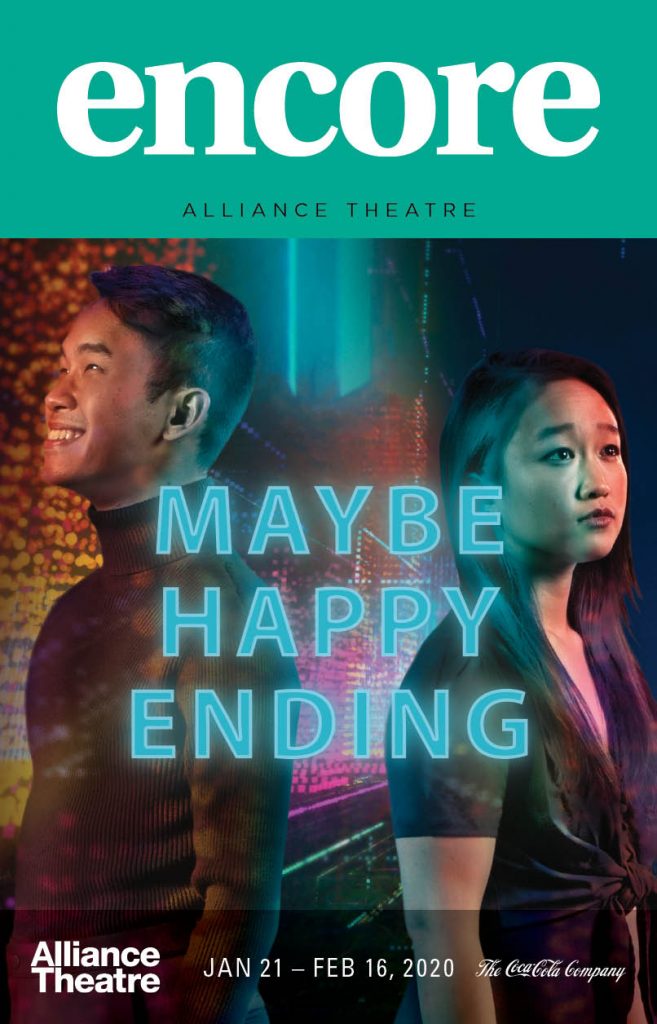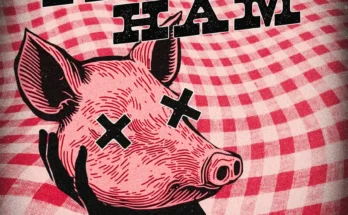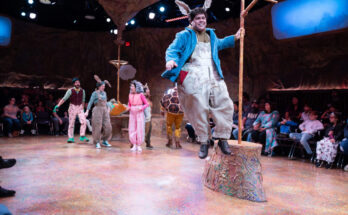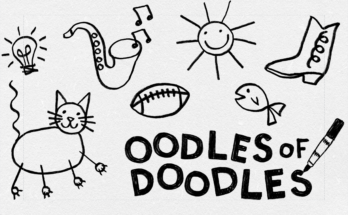“What if we wrote a show about what it means to be human and told the story through robots?”
When book-writer and lyricist Hue Park emailed his writing partner Will Aronson suggesting such a concept, the pair never batted an eye at the irony of using sci-fi to explore the gift of everyday life.
“Now that everyone’s spending more and more time looking at their cell phones, spending time online, and not actually talking to other people face to face, I feel like we are getting more and more used to not expressing our emotions as much as we used to,” Park shares. “We are slowly turning into robots, in a way. So I think that was one of the first inspirations to write the show.” Park says this inspiration initially sparked when he heard the lyrics to a Damon Albarn song, “Everyday Robots,” talking about how we are all trying to find belonging in our cell phones.
Years later, the concept has evolved into award-winning musical Maybe Happy Ending, which first opened in Korea, making its American premiere in Atlanta.
Park and Aronson admit that the premise of the show can sound like your average impersonal sci-fi flick, and Tony Award-nominated director Michael Arden says he himself had this misconception at first.
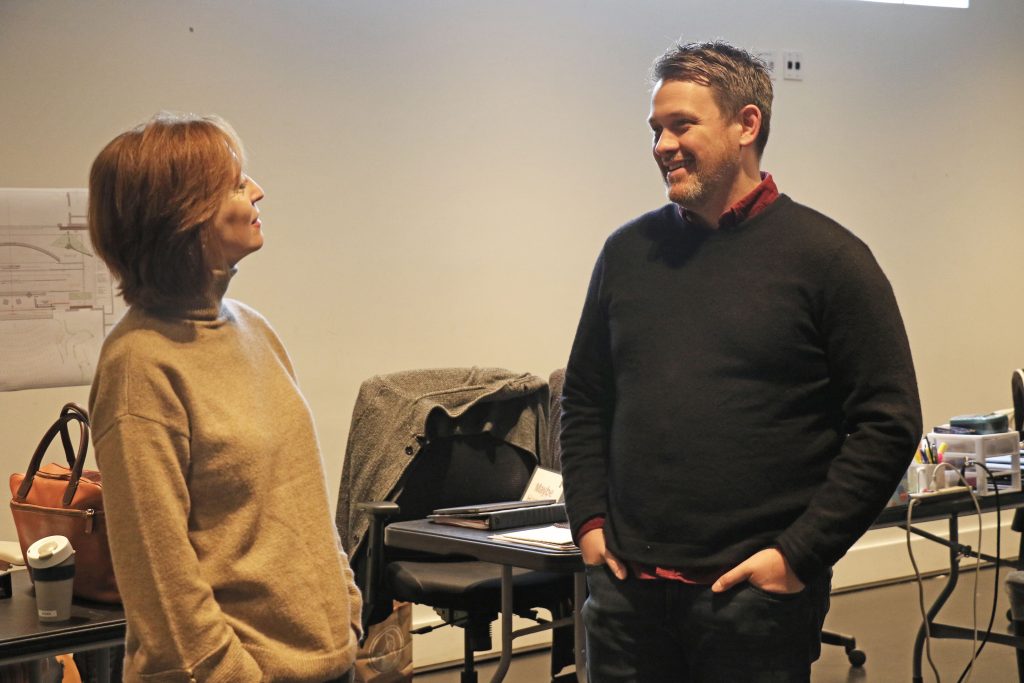
“When I read the tagline, I thought, ‘That’s a terrible idea. Who wants to go see that? We go to the theatre to see people and human stories!’” Arden says. After really experiencing the musical, however, he quickly changed his tune. “By the time I finished reading and listening to the demo, I was a mess. I really felt it was about me and everyone I knew.”
Despite its futuristic premise, Maybe Happy Ending is not so much about looking towards the future and the dangers therein, but about valuing interpersonal opportunities here and now.
“I don’t think we’re saying technology is bad,” Park says. “I think we’re asking, ‘What’s the most magical experience that we get to have as humans, when we are only on this planet for a limited time?’ We felt the robots were more human than us, so we let them teach us about the things we’d forgotten about life.”
Part of the reason behind choosing robots was that the characters could look at the human experience with a fresh eye, viewing emotions and connection with wonder.
“Yes, it’s about technology, but it’s really a metaphor,” Arden explains. “It’s really about relationships, and it’s about end of life. It’s about, I think, how we choose to navigate love and death. It’s such a human story, and it highlights this idea that when you sign up to love someone, you in turn sign up to lose them. I found that so beautiful, and I had to be part of it.”
Aronson says this concept plays out in the way the robots go from a simple, predictable existence safely in their rooms to one outside their rooms in an unknown space full of wonderful and scary possibilities.
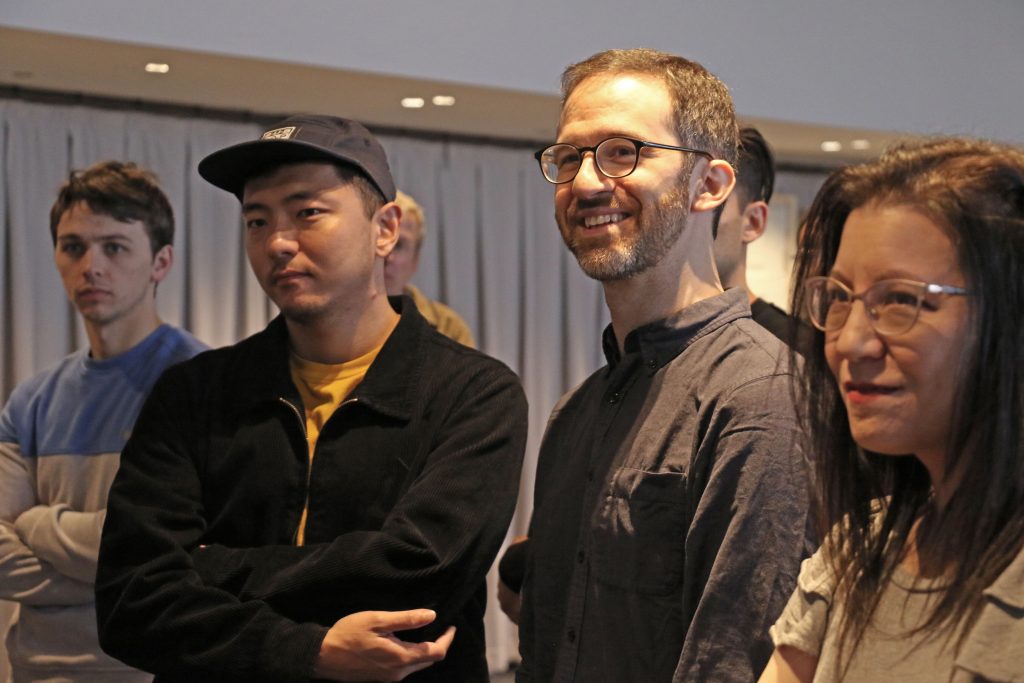
“At the beginning, the robots know what their place is, and then they actually leave their rooms, go out into the world, see each other, and have experiences,” Aronson says. “There’s a big risk in getting attached to things when they leave their rooms because when you start caring and making connections, you have the capability of being hurt or losing things. But at the same time, you also have the possibility of having much richer, deeper, beautiful experiences that you wouldn’t have if you just stayed in your room and did what was safe.” Ultimately, the writers have created this musical to revolve around this risk.
“Once you take that risk and go out into the world, it’s the first time you have the possibility of experiencing something beautiful,” Aronson says. “But you don’t have any kind of guaranteed happy ending out of it. It’s a question mark.”
“And the more experiences they have, the more they’re kind of ‘off-script,’ learning from each other and improvising in life.” Musically, Aronson incorporates a hint of jazz music to convey this improvisation motif. “There are only a couple jazz numbers in the show, but that spirit influenced our writing of it, definitely.”
From this undercurrent of uncertainty comes the title itself Maybe Happy Ending, though the English language version was originally entitled What I Learned from People.
So was the musical first written in English or Korean? The answer is, yes.
“Hue and I have an odd way of working,” Aronson shares. “We wrote the first draft in English, and then Hue put it into Korean and polished and added things, then wrote the lyrics in Korean first. So then we produced the show in Korea, and then we translated the lyrics into English and finished and revised the English script.”
From Arden’s perspective, Maybe Happy Ending captures the essence of theatre, allowing audiences to empathize and connect to unlikely characters.
“Here’s what I love about theatre, and this piece is a prime example: You might be confronted with character situations and settings that are quite disparate from your own, but by the end of it, you leave having seen yourself on stage,” Arden says. “I think when we’re able to create that connection over a divide, whether it be race, class, gender, age, or in this case, human to robot, that creates empathy. I think that’s what theatre has the power to do, and I think that’s so needed right now.”
Maybe Happy Ending runs Jan 21-Feb 16. Click here to purchase discounted tickets from $35-$42.50 (plus applicable fees).
Photo credits: A’riel Tinter
